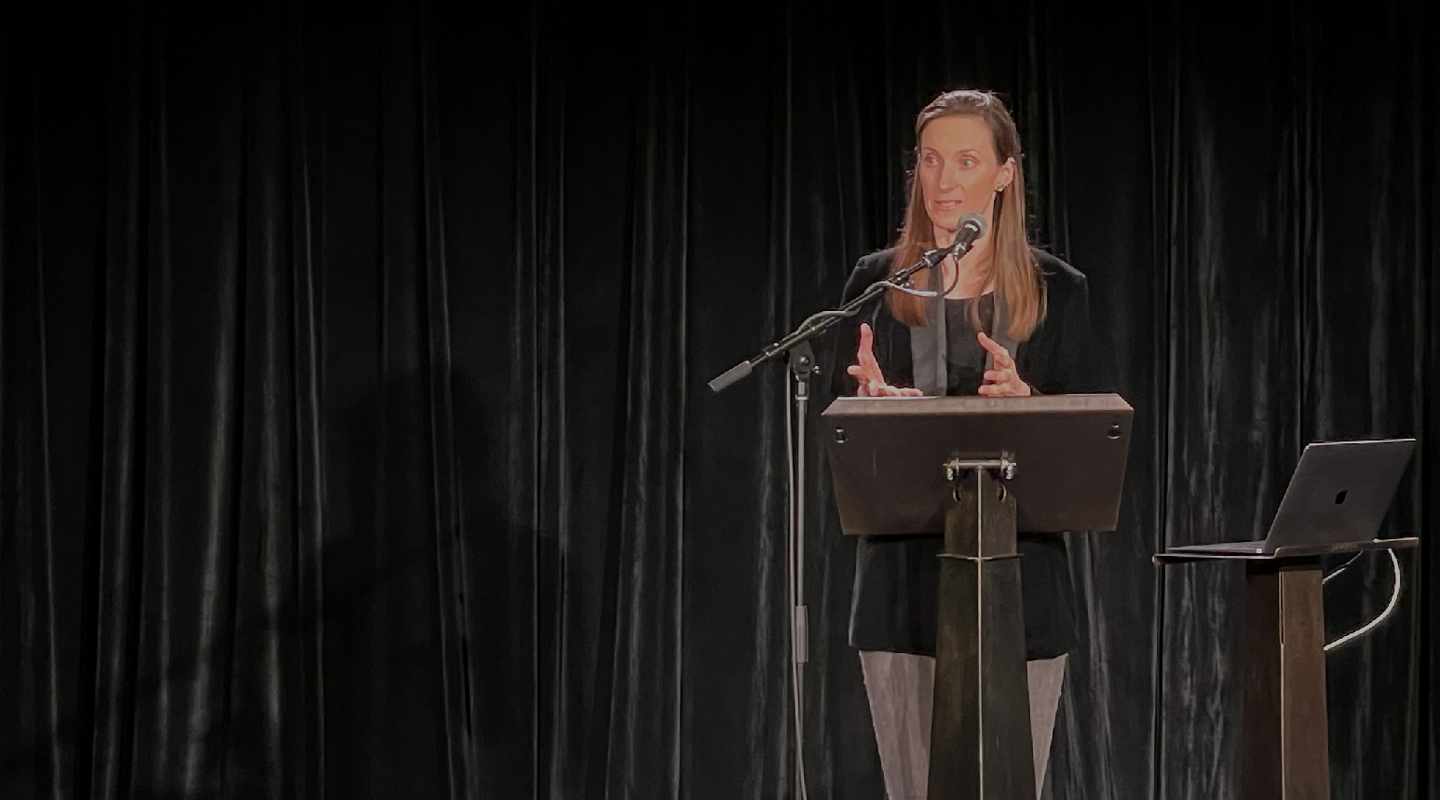Katie Davis, an associate professor at the University of Washington Information School, drew on her expertise in developmental science March 23 at Town Hall Seattle in a talk titled “The Role of Digital Media in the Ages and Stages of Growing Up.”
Davis, who is a co-director of the iSchool’s Digital Youth Lab, spoke about her research and her recently published book, Technology’s Child. In the book, Davis investigates how children engage with technology at each stage of development, from toddler years to their early 20s, and how they can best be supported.
“When does technology support child development and when does it not?” Davis asked the audience.
In her talk, Davis shared how her roles as a parent and a researcher have influenced her research. Earlier in her research career, she recognized that there was only nuanced information on whether technology was good or bad. Such information didn't really help when it came to informing her own decisions on how to parent her child’s technology use.
“But seriously, how many episodes of ‘Paw Patrol’ are too many?” said Davis. Parenting questions like these are what Davis sought to answer in her book. “I wanted to explore whether there was anything concrete that we could distill from this complex research landscape.”
In her book, Davis draws on research about what kids really need to thrive developmentally and puts it into conversation with the best and latest research on technology’s impact on kids at different stages of development. She introduced a two-step framework from Technology’s Child to the audience at Town Hall. The framework differentiates between self-directed and community technology experiences to help inform decision-making about child technology use.
She further discussed ways technology can support child development but also detract from self-direction. She noted that technology design impacts each child and teen differently.
“Same design, different teens. Technology experiences vary based on individuals and the social contexts that they come from,” said Davis.
With these different experiences in mind, Davis’s book identifies specific designs and design interactions that support and undermine health development. She hopes her research will help design technology experiences that support well-being for various demographics.
The book talk ended with a message from Davis to parents like herself who are worried about making the right technology decisions for their kids.
“A good enough digital parent realizes we’re all still learning. Try different things, and adjust based on how things are going,” said Davis. “There is no such thing as a perfect parent.”
